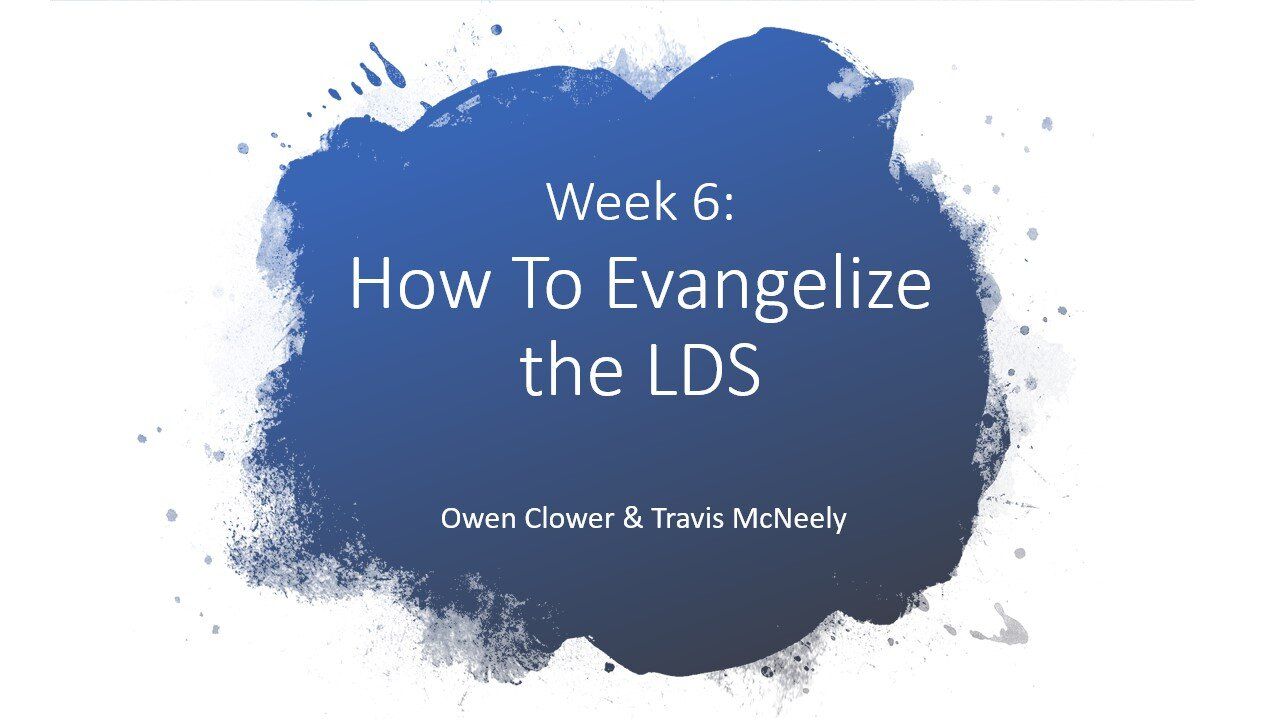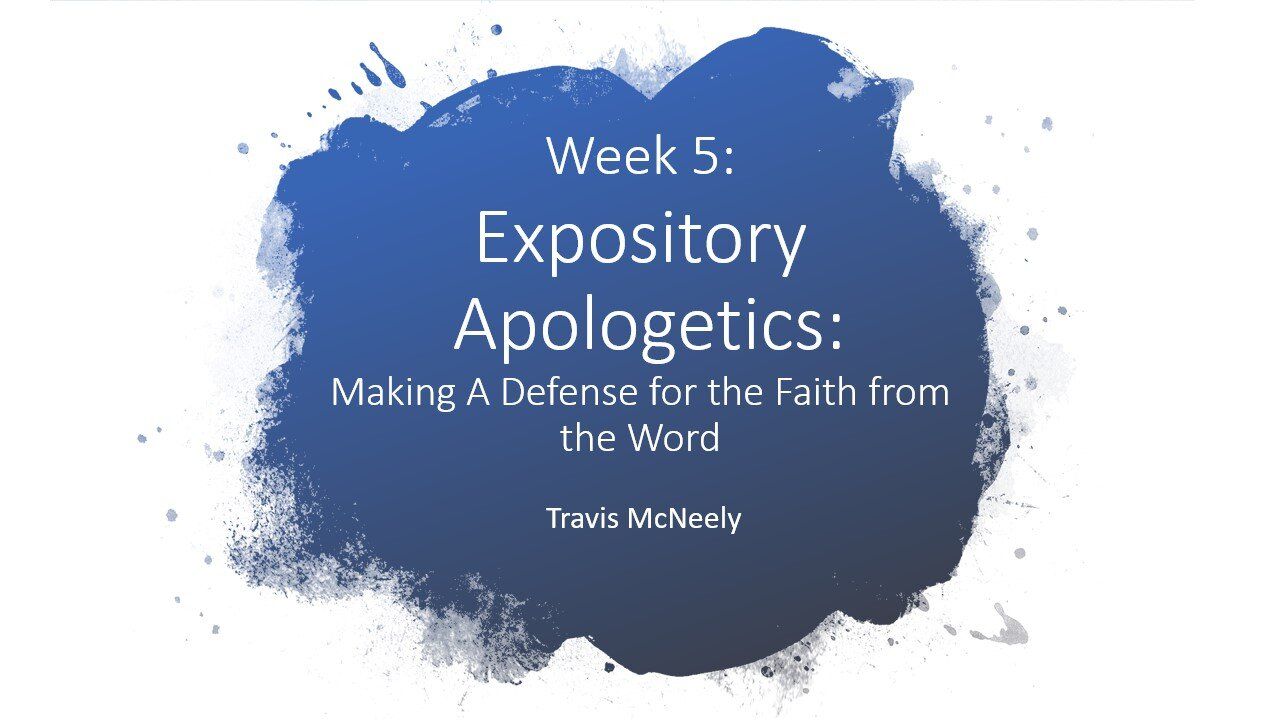4 Ways To Be Rooted in the Sufficiency of Christ


Paul loved this church, yet he never met them. Something similar happened to me when I was a youth leader at a small church in Hurst, TX that reminds me of this perspective Paul must've had. I was told about the need there, I met the Pastor and heard his heart and the need for help in the student ministry and my affections were immediately stirred to pour out God's love to these students.When I got there to the church, I told those students that I had been praying for them and that I loved them. One girl immediately responded, "How can you love us, you don't even know us?!"Fair question.Like I was able too, Paul did. He loved this church. He had never met them, but he had a sincere and deep affection for them.His prayer for them was very specific. The information he received about them (so he could pray for them) came from Epaphras. Before the prayer, Paul lays out how they learned the grace of God, "from Epaphras our beloved fellow servant. He is a faithful minister of Christ on your behalf and has made known to us your love in the Spirit" (Col. 1:7-8).Paul was able to get credible knowledge of who they were and where they were at with what has been going on in Colossae. A syncretistic heresy had crept into the church (See my posts on the Colossian Heresy here: Part 1, Part 2, Part 3, Part 4) , and Paul was eager to see them through this to see Christ as all-sufficient. The only way they could make it through this is if Christ and Christ alone was the place where they planted their roots.Paul's prayer:
And so, from the day we heard, we have not ceased to pray for you, asking that you may be filled with the knowledge of his will in all spiritual understanding, so as to walk in a manner worthy of the Lord, fully pleasing to him, bearing fruit in every good work and increasing in the knowledge of God. May you be strengthened with all power, according to his glorious might, for all endurance and patience with joy, giving thanks to the Father, who has qualified you to share in the inheritance of the saints in light. He has delivered us from the domain of darkness and transferred us to the kingdom of his beloved Son, in whom we have redemption, the forgiveness of sins.Colossians 1:9-14
Being Rooted in the sufficiency of Christ happens in 4 ways: by Prayer, by knowing God’s word, by living in His Ways, and by giving thanks for what God has done in Christ .This prayer is jam-packed with amazing truths. What Paul prays for is that they would be rooted in Christ and nothing else. There are four parts to this prayer, which helps guide our thinking to do what is prayed by Paul. We are Rooted by...1. ) By Prayer. Paul had not ceased to pray for them, an example that should be imitated. Paul asked (prayed to) God that they would gain knowledge, but not just any knowledge, but knowledge of his will. This starts the posture of Paul's heart before God and those he hasn't met.2.) By Knowing God's Word . "may be filled with the knowledge of his will in all spiritual understanding" The filling of the knowledge of his will comes only through God's word. God's will is revealed in His Word . Do you want to know what God thinks about ________? Go to what He has declared. It is TOTALLY sufficient.This phrase "you may be filled," conveys this idea of filling in such a way as to combat the "filling" offered by the false teachers. It was a pushback against those who seem to be pushing an idea that they can be fulfilled otherwise, by adding Jesus to what they were already worshipping."Jesus + ___________ = fullness."That very well could be a modern way to spin their mantra.The knowledge of God's will that Paul desired for them, was expressed with the prayer that they would receive "all spiritual wisdom and understanding." This "spiritual wisdom" is reminiscent of James 3 to seek wisdom from above.The wisdom from below if filled with "bitter jealousy and selfish ambition in your [our] hearts" (Jam. 3:14a). He goes on to say, "This is not the wisdom that comes down from above, but is earthly, unspiritual, demonic. For where jealousy and selfish ambition exist, there will be disorder and every vile practice" (3:15-16).The wisdom from above has a different look to it. A different result as well. James says, "But the wisdom from above is first pure, then peaceable, gentle, open to reason, full of mercy and good fruits, impartial and sincere. And a harvest of righteousness is sown in peace by those who make peace" (3:17-18).When Paul is saying this. He is recalling the rich biblical teaching of God's wisdom. From the Old to New Testaments. We see that "The fear of the LORD is the beginning of wisdom." Wisdom is when we act out what we know to be true in an applicable way.Paul wants them to be filled with the knowledge of God's will in all spiritual wisdom and understanding. For what purpose?3.) By Living in His Ways
"so that you may walk in a manner worthy of the the Lord, fully pleasing to him, bearing fruit in every good work and increasing in the knowledge of God."
Paul had results in mind. He didn't want them to just have knowledge, like these false teachers declared they had; he wanted them to have Christ! Christ was enough to change them and satisfy them--they didn't need to add anything else.He goes on to say later in this letter, when referring to Christ's sufficiency, "In whom are hidden all the treasures of wisdom and knowledge" (Col. 2:3). Not some, ALL. Whatever you could ever need is found in Jesus and what He as a good Giver gives!God wants our talk to match our walk. It can't do so if we try to find help in things other than what God has provided. He is sufficient, His Word is Enough, we don't need to add philosophies that are filled with vain deceit according to human tradition and not according to Christ (Col. 2:8).4.) By Giving Thanks We need to ultimately respond by thanking Him that He is enough, and not just giving intellectual assent that God is enough. When you are thankful, it is something you declare, that you speak, but it comes from a heart of gratitude.But Why? Why should I give thanks?Look at the text:
giving thanks to the Father, who has qualified you to share in the inheritance of the saints in light. He has delivered us from the domain of darkness and transferred us to the kingdom of his beloved Son, in whom we have redemption, the forgiveness of sins.
We've been qualified. We are delivered. We are transferred. We have redemption. We are forgiven. There are a number of reasons to give thanks to God. Here we have a new status before God. The foundation of our ability to even approach God.We notice in Romans 1, that those who refused to honor God or give thanks to him, they became futile in their thinking and their foolish hearts were darkened.But in Colossians 1, Paul's prayer is that they would not be like this, but that their thanksgiving would be rooted in the fact that they now are qualified to share in the inheritance of the saints in light. We become rooted in Christ's sufficiency when we pray, know God’s word, live it out, and give thanks for what God has done in Christ. Colossians 2:6,7 is another instance where this truth is conveyed a few verses later.
6 Therefore, as you received Christ Jesus the Lord, so walk in him, 7 rooted and built up in him and established in the faith, just as you were taught, abounding in thanksgiving.
"Walk in Him" and "Abounding in Thanksgiving" are both in the active voice, meaning this is something we are to do. Walk with Jesus and Be Thankful. God does the rest because "rooted and built up in him, and established in the faith," That is all passive, meaning God is doing in them and often through others (like Epaphras "just as you were taught").If you want to be rooted in Christ, participate in your sanctification by surrendering your will to Him and be thankful for what God has done and that produces in you and I, a greater depth of roots in Jesus.
Want To Book Me for Your Event or Conference?
Fill out the form below and we'll be in touch!
Book Travis McNeely
We will get back to you as soon as possible
Please try again later
More posts like this...




